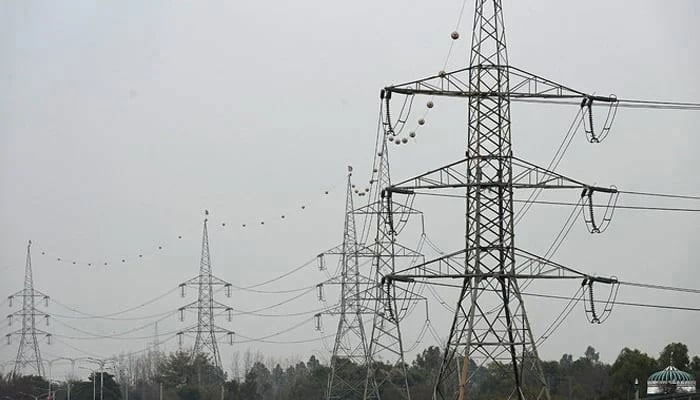Parliamentary panel urges IPPs pacts review amid rising power tariffs
Panel emphasized that rising electricity prices are causing severe distress to citizens and urged immediate action to address issue
ISLAMABAD: A parliamentary panel on power has called for a review of agreements reached with Independent Power Producers (IPPs), citing the enormous burden they place on the public.
The panel emphasized that rising electricity prices are causing severe distress to citizens and urged immediate action to address the issue.
The Senate’s Standing Committee on Power, chaired by Senator Mohsin Aziz, met to discuss the matter. Aziz highlighted the need to continuously review the IPPs agreements and assess the damage these private companies have inflicted on the public. The Private Power and Infrastructure Board (PPIB) managing director told the panel that the country currently had an installed capacity of 45,000 megawatts, with 60 per cent generated from private sector power plants (IPPs).
Senator Shibli Faraz questioned the non-appointment of MD National Transmission & Despatch Company (NTDC). Minister for Power Awais Leghari assured that the appointment would be made within one month. Leghari also acknowledged structural issues within the NTDC and stated that the government was working on the overall restructuring of the power sector. The minister said the NTDC would be restructured to create an independent entity similar to the Central Power Purchasing Agency (CPPA).
The Power Division secretary informed the panel the country is currently generating 22,000 megawatts of electricity. In winter, the demand and generation drops to 8,000 megawatts. He explained that the reduction causes frequent blackouts during winter, and in the event of a complete blackout, only those plants with black start capability could be activated. The secretary mentioned that currently, only hydel plants had the black start capability. The government had decided not to set up any power plants based on imported fuel, with the secretary noting that plants running on furnace oil produce the most expensive electricity.
The Power Division officials announced that the country’s installed electricity capacity would reach 56,000 megawatts in the next decade. They emphasized that the national grid would include a significant portion of hydropower.
Senate Committee Chairman Mohsin Aziz questioned the rationale behind setting up an imported coal plant in Sahiwal, noting the impracticality of such projects operationally and environmentally. The chairman also suggested that such plants should be located near ports. The Power Division secretary explained that such projects were installed based on load centres. Minister Leghari explained that the cost of imported coal was initially Rs3/unit, but due to the devaluation of Pak Rupee, it has increased to over Rs12/unit. The minister also informed the committee the government was working on shifting power plants from imported coal to local coal, which could save consumers Rs2 per unit. Officials from the Ministry of Power (Energy Division), while reporting on the transition to indigenous green energy, stated that four plants — Jamshoro, Sahiwal, Port Qasim and Hub — were utilising imported coal. Minister Leghari added that due to the lack of availability of Thar coal and local fuels, an alternative method for electricity production was required, and the depreciating rupee and other factors significantly influenced their decision to use imported coal.
Senator Mohsin Aziz expressed a sympathetic view toward electricity thieves, questioning what those unable to pay their bills should do. “If they can’t pay the bills, they’ll resort to illegal connections,” he said. In response, the minister said electricity theft could not be justified in any manner.
-
 Victoria Wood's Battle With Insecurities Exposed After Her Death
Victoria Wood's Battle With Insecurities Exposed After Her Death -
 Prince Harry Lands Meghan Markle In Fresh Trouble Amid 'emotional' Distance In Marriage
Prince Harry Lands Meghan Markle In Fresh Trouble Amid 'emotional' Distance In Marriage -
 Goldman Sachs’ Top Lawyer Resigns Over Epstein Connections
Goldman Sachs’ Top Lawyer Resigns Over Epstein Connections -
 How Kim Kardashian Made Her Psoriasis ‘almost’ Disappear
How Kim Kardashian Made Her Psoriasis ‘almost’ Disappear -
 Gemini AI: How Hackers Attempt To Extract And Replicate Model Capabilities With Prompts?
Gemini AI: How Hackers Attempt To Extract And Replicate Model Capabilities With Prompts? -
 Palace Reacts To Shocking Reports Of King Charles Funding Andrew’s £12m Settlement
Palace Reacts To Shocking Reports Of King Charles Funding Andrew’s £12m Settlement -
 Megan Fox 'horrified' After Ex-Machine Gun Kelly's 'risky Behavior' Comes To Light
Megan Fox 'horrified' After Ex-Machine Gun Kelly's 'risky Behavior' Comes To Light -
 Prince William's True Feelings For Sarah Ferguson Exposed Amid Epstein Scandal
Prince William's True Feelings For Sarah Ferguson Exposed Amid Epstein Scandal -
 Nick Jonas Gets Candid About His Type 1 Diabetes Diagnosis
Nick Jonas Gets Candid About His Type 1 Diabetes Diagnosis -
 King Charles Sees Environmental Documentary As Defining Project Of His Reign
King Charles Sees Environmental Documentary As Defining Project Of His Reign -
 James Van Der Beek Asked Fans To Pay Attention To THIS Symptom Before His Death
James Van Der Beek Asked Fans To Pay Attention To THIS Symptom Before His Death -
 Portugal Joins European Wave Of Social Media Bans For Under-16s
Portugal Joins European Wave Of Social Media Bans For Under-16s -
 Margaret Qualley Recalls Early Days Of Acting Career: 'I Was Scared'
Margaret Qualley Recalls Early Days Of Acting Career: 'I Was Scared' -
 Sir Jackie Stewart’s Son Advocates For Dementia Patients
Sir Jackie Stewart’s Son Advocates For Dementia Patients -
 Google Docs Rolls Out Gemini Powered Audio Summaries
Google Docs Rolls Out Gemini Powered Audio Summaries -
 Breaking: 2 Dead Several Injured In South Carolina State University Shooting
Breaking: 2 Dead Several Injured In South Carolina State University Shooting




